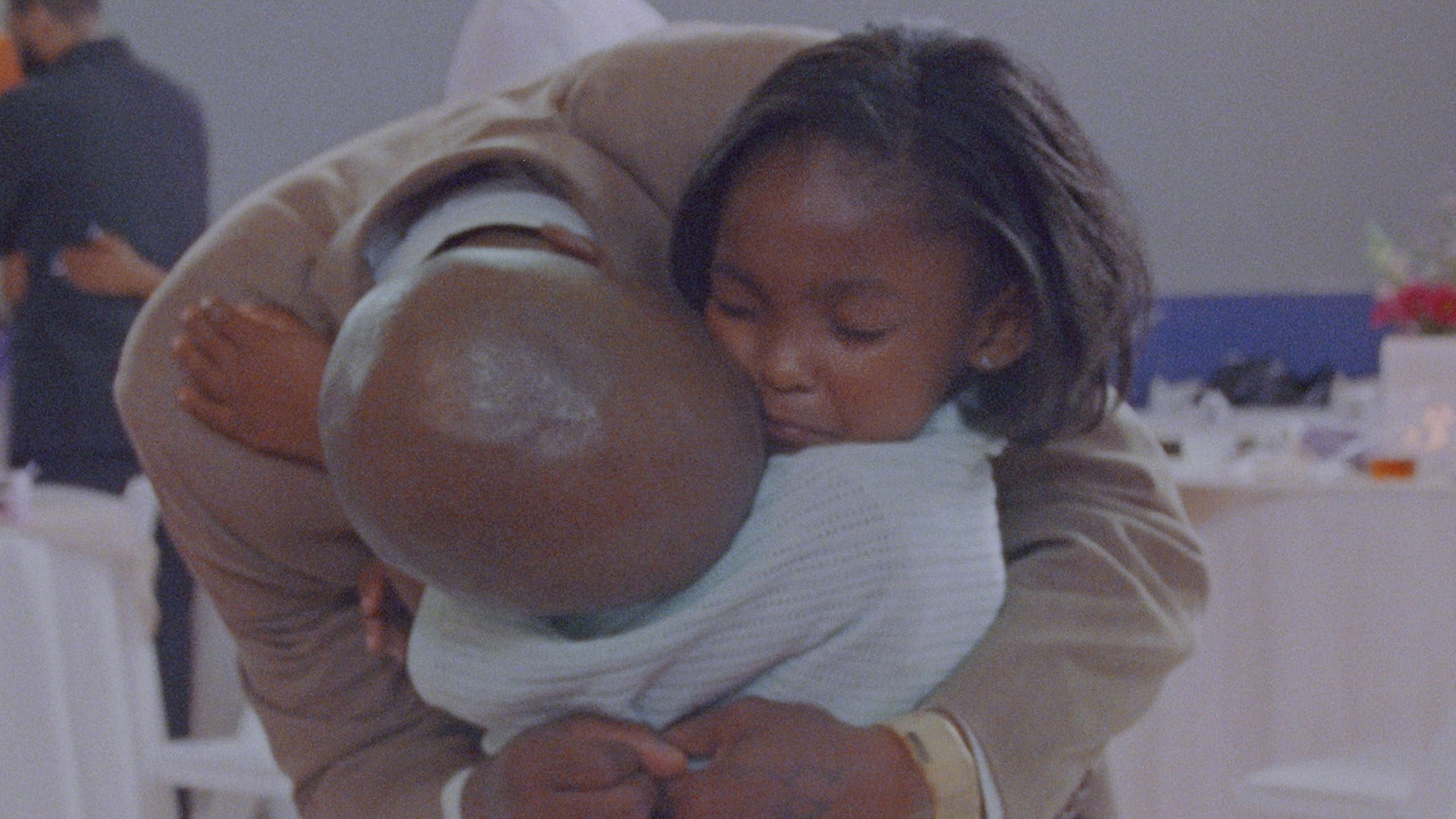
As a movie critic with a background in social work and a personal connection to communities affected by the harsh realities of the prison system, I found “Daughters” to be a poignant and powerful documentary that resonated deeply within me. The film’s intimate portrayal of the emotional struggles faced by both the incarcerated fathers and their daughters was heart-wrenchingly honest, raw, and unapologetic in its presentation.
When a parent is imprisoned, the entire family experiences confinement. In communities of color particularly impacted by the indifferent workings of the prison system, an exceptional program has emerged, designed for daughters yearning for a stronger bond with their incarcerated fathers: a visitation at the jail.
The film “Daughters,” created by directors Natalie Rae and Angela Patton, showcases an event called a Daddy Daughter Dance in Washington, D.C. This special evening transforms the jail’s gym into a venue reminiscent of a prom, as inmates exchange their orange uniforms for jackets and ties, and the girls attending dress up elegantly. For a few precious hours, this gathering allows the emotional tension between the incarcerated fathers and their daughters to momentarily ease.
The movie, centered around a few girls and their fathers preparing for an upcoming dance event, is both heartwarming and bittersweet, as one might expect. It’s a testament to the brilliant partnership between Rae, who has a directing background, and Patton, a social activist with a nonprofit focused on Black girls, that they don’t shy away from portraying the vulnerability and apprehension behind this seemingly positive and motivating experience. Despite the promise that 95% of the participating fathers will not return to jail, the film doesn’t flinch from revealing the emotional turmoil and uncertainties that are part of the process and its consequences.
The sincere focus on the emotional authenticity of the process, which may uncover sorrow as well as optimism, prevents “Daughters” from appearing promotional, despite its effective promotion of this initiative. From the get-go, you’ll be emotionally stirred by Aubrey, a delightful 5-year-old with an aptitude for math that serves as a bittersweet reminder of her father’s absence for those years. In contrast, Santana, aged 10, is a mature girl whose protective shell has been hardened due to the frailty of the adults around her. Meanwhile, Ja’Ana, who hasn’t met her dad at all and is 11, mirrors her mother’s concerns about his reliability. Furthermore, Raziah, a high school student, grapples with anxiety as she has reportedly contemplated self-harm, according to her mother.
In a sunlit, spacious room with large round windows, a group of fathers – visibly anxious yet authentic – gather under the guidance of a supportive coach in fatherhood groups. They openly discuss their challenges and are encouraged to consider the forthcoming dance from their daughters’ perspective, aiming to project themselves as trustworthy promise-makers.
We learn the characters’ names in the film, yet the directors never reveal their fates or journeys, which seems fitting – their aspirations and personal growth are what shape them for us. To add a touch of subtlety, occasional poetic, home-video-style interludes appear throughout, depicting the girls at play, hinting at moments they missed out on.
It’s not unusual that on the special day, when well-dressed fathers eagerly anticipate their dates, you might find it difficult to swallow due to emotions. Despite the embraces, tears, laughter, more hugs, funny photos, and cute dances, there are also moments of uncomfortable getting-to-know-you situations and even palpable tension. Filmmakers Rae and Patton, who documented their subjects over years, are perceptive enough to capture the various emotions at play.
The open-ended nature of “Daughters” becomes apparent, and it’s through the challenges of distance that we truly understand the intricate choreography, as fathers and daughters connect without physical or financial barriers like plexiglass or expensive video calls keeping them apart. The power in touch, both given and received, transforms “Daughters” into a heartrendingly beautiful testament to the importance of second chances amidst a world that feels increasingly isolating and fragmented.
Read More
- Clash Royale Best Boss Bandit Champion decks
- Vampire’s Fall 2 redeem codes and how to use them (June 2025)
- Best Arena 9 Decks in Clast Royale
- World Eternal Online promo codes and how to use them (September 2025)
- Country star who vanished from the spotlight 25 years ago resurfaces with viral Jessie James Decker duet
- JJK’s Worst Character Already Created 2026’s Most Viral Anime Moment, & McDonald’s Is Cashing In
- ‘SNL’ host Finn Wolfhard has a ‘Stranger Things’ reunion and spoofs ‘Heated Rivalry’
- M7 Pass Event Guide: All you need to know
- Solo Leveling Season 3 release date and details: “It may continue or it may not. Personally, I really hope that it does.”
- Kingdoms of Desire turns the Three Kingdoms era into an idle RPG power fantasy, now globally available
2024-08-10 02:31